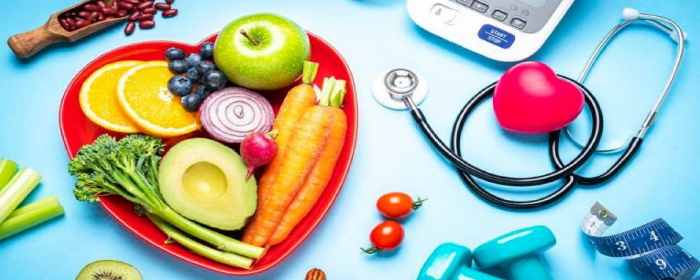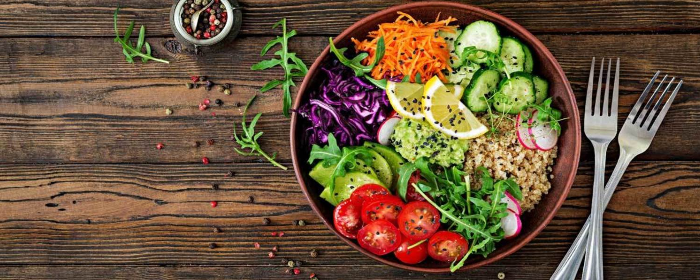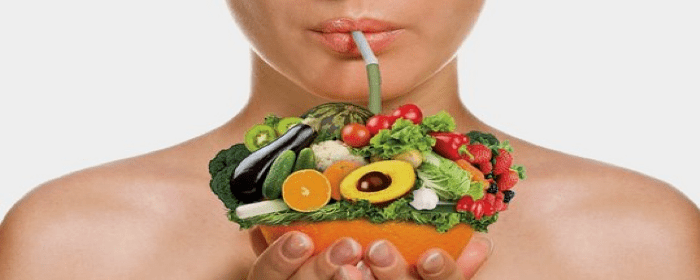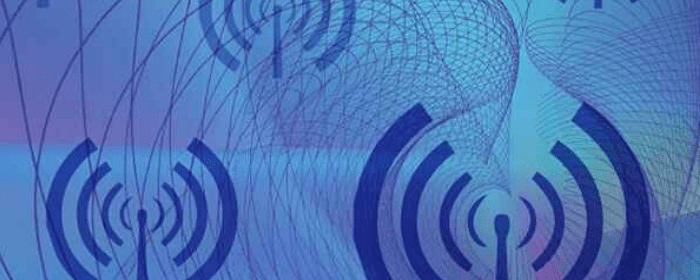
by admin | Jun 29, 2022 | Health Awareness
High blood pressure, also known as hypertension, affects almost half of the adults in the U.S. Hypertension causes blood to apply long-term force to the artery walls, making sufferers more susceptible to heart disease and stroke.
While high blood pressure is concerning, it’s also a manageable condition. Here are several of the most effective ways you can lower your blood pressure without medication.
1. Exercise
One of the best ways to reduce your blood pressure in the long term is to stay active.
2. Maintain a Healthy Weight
Overweight patients who lose as little as five to ten pounds can lower their blood pressure, and even light physical activity can have the same effect.
3. Add Healthy Foods to Your Diet
Studies show that adding certain foods to your diet can help lower your blood pressure. These foods include:
- Potassium-rich bananas
- Sweet potatoes
- Protein-rich lean meats
- Fish
- Polyphenol-supplying berries
- Magnesium-rich vegetables, legumes, and whole grains
- Flavonoid-supplying dark chocolate
- Garlic or garlic extract
As you increase your consumption of healthy fruits, vegetables, lean meats, and whole grains, you’ll find an added benefit of less appetite for foods that can raise your blood pressure.
4. Reduce Consumption of Hypertension-Supporting Foods and Drinks
Studies show that reducing your consumption of sugar, refined carbohydrates, and prepackaged foods can lower your blood pressure. Additionally, drinks like alcohol and caffeine can raise your blood pressure.
5. Stop Smoking
Healthy blood pressure is another reason to quit smoking. The chemicals in tobacco can damage your blood vessel walls, causing inflammation and increasing the pressure.
6. Lower Your Stress Levels
Higher stress levels equal higher blood pressure, so taking steps to lower stress can benefit your physical health. Activities like yoga help your body and mind. Practicing meditation helps you find calm in any situation, and the simple act of petting an animal can instantly lower your blood pressure.
7. Cook at Home
Cooking at home lets you control the ingredients in your meals, namely sodium. Restaurant meals can have up to six times the amount of sodium as a home-cooked meal. Reduced sodium can result in reduced blood pressure.
8. Improve Your Sleep
A poor night’s sleep can negatively affect your blood pressure. People who sleep six hours a night or less have consistently higher blood pressure.
If you try these methods and find your blood pressure remains consistently high, consult your physician for the next steps, such as medications to control your hypertension.
For more health awareness blogs, please visit www.stemedix.com/blog.

by admin | Jun 15, 2022 | Health Awareness
According to a poll in January 2022, about 10% of Americans over 18 consider themselves vegan or vegetarian. The sudden rise in popularity of a meat-free lifestyle is attributed to environmental concerns, animal welfare concerns, and increased convenience as new plant-based meats become widely available.
Whether your desire to eliminate or just cut back on meat is based on health, cultural, environmental, or religious reasons, switching to a plant-based diet is a big step.
The easiest way to shift to a vegetarian diet and stick with your changes is to begin gradually to make the transition more comfortable and nutritionally stable. We advise taking these basic steps.
Step 1: Evaluate Your Current Diet
Before making any significant changes, you should understand your starting point. Keep track of the foods you currently eat. Next, take note of the meals and snacks that are vegetarian.
As you shift your diet to more vegetarian meals, start incorporating vegetarian dishes you already enjoy and alternating them with your old omnivore eating habits.
Step 2: Revise Your Old Favorites
Look at the favorite meals you’ll miss the most when you’re entirely vegetarian. Begin looking for meat-free versions you can also love. For example, spaghetti with meatballs can easily become spaghetti with marinara sauce, or you can find a plant-based substitute for your favorite meatballs.
Step 3: Try New Recipes
As you adjust to your new diet, search for recipes to round out your menus. First, try checking out some vegetarian cookbooks from the library until you find one full of recipes you enjoy. Then, get adventurous in the kitchen with new products and meal ideas.
Step 4: Make the Shift, One Meal at a Time
Many people find that breakfast is the easiest meal to make meatless. You can begin your journey to vegetarianism by eliminating meat in your first meal of the day — and work your way up to all three. Allow yourself some room to adjust as you overhaul your diet.
Step 5: Evaluate Your Current Diet Again
Everyone faces significant challenges in getting the proteins, whole grains, fruits, and vegetables their bodies need. So, take the time to track your eating habits and ensure you’re getting enough grains, legumes, vegetables, fruits, and variety in your diet.
If your diet lacks certain nutrients, make a list of foods to incorporate to give your body all of the fuel it needs.
For more health awareness blogs, please visit https://www.stemedix.com/blog.

by admin | Jun 8, 2022 | Health Awareness
From cleansers and creams to masks and serums, there are tons of skin care products on the market today. But having healthy, glowing skin requires more than a multi-step skincare routine. In fact, what’s going on inside your body has a huge impact on your skin.
Keep reading for some quick tips on how to develop healthy skin, starting from within.
Eat a Balanced Diet
A balanced diet rich in vitamins, minerals, and plenty of lean protein has been linked to clearer and healthier skin. Focus on eating whole foods to avoid the high levels of sugar and fats commonly found in processed foods and linked to acne breakouts.
Aim to incorporate as much vitamin C and omega-3 fatty acids as possible, since they are essential for nourishing your skin.
Get Plenty of Sleep
Your body needs time to recharge and repair itself while you sleep. If you don’t get enough sleep each night, you may notice your skin looking dull or showing signs of aging sooner.
Stay Hydrated
Make sure to drink plenty of water to help keep your skin hydrated and looking fresh. If you don’t drink enough water every day, your skin could end up looking dull and dry. For healthy-looking skin, try to drink at least six cups of water per day.
Cut Back on Dairy
The hormones found in milk can cause acne to pop up around your face. If you suffer from frequent breakouts and you eat a lot of dairy, try cutting back on dairy for a month, and see if it helps.
Consider Adding Collagen Supplements
Collagen plays a big role in the elasticity of your skin and the skin repair process. Collagen is often found in meats, but you can get an extra boost of collagen by adding a daily supplement.
For more health awareness blogs, please visit www.stemedix.com/blog.

by admin | Jun 1, 2022 | Health Awareness
While you may be familiar with your circadian rhythm — your body’s natural way of following a 24-hour clock — circadian health can optimize your sleep-wake cycle to benefit your overall health.
How Does Your Circadian Rhythm Affect Your Health?
Maintaining a consistent sleep-wake cycle that allows for seven to nine hours of sleep each night is critical to your overall health. People who struggle consistently with getting enough sleep experience both short- and long-term health effects.
In the short term, circadian rhythm disruptions cause:
- Poor energy
- Memory issues
- Digestive concerns
- Slow healing
- Inconsistent body temperatures
- Hormonal issues
When you maintain poor circadian health, you can experience long-term effects throughout your body, including:
Additionally, poor circadian health is linked to diabetes, obesity, and mental health conditions.
Improving Your Circadian Health
Improving your circadian health begins with understanding your current habits and routines. One of the easiest ways to track your circadian health is to keep a log for one week that tracks your bedtimes, wake-up times, exercise habits, time spent outdoors, and diet — especially foods consumed just before bedtime.
Then, look for areas where you can make improvements. Some people only need to tweak a couple of their routines, while others may need to reset to restore their circadian health completely.
Some methods to improve your circadian health include:
- Maintain a consistent routine and sleep schedule
- Take a walk outdoors in early daylight to promote wakefulness
- Get enough daily exercise
- Sleep in a restful environment with proper temperatures and lighting
- Avoid screens for one to two hours before bedtime
- Avoid alcohol, nicotine, and caffeine in the evenings
While implementing all changes at once can be difficult, starting with small changes can allow you to progressively see benefits and provide motivation for more changes to restore your circadian health.
For more health awareness blogs, please visit www.stemedix.com/blog.

by admin | May 25, 2022 | Health Awareness
At some point in your life, you have probably heard that cell phones and microwaves can cause all sorts of health problems, including cancer.
Some people claim that the electromagnetic fields, or EMFs, that are emitted by certain devices and household appliances give off radiation that has an ionizing effect on your body’s cells. But is there any truth to these claims? Keep reading to find out.
Understanding the Electromagnetic Spectrum
EMFs don’t come in just one form; they fall somewhere on the electromagnetic spectrum. The electromagnetic spectrum illustrates all of the different types of electromagnetic radiation and organizes them based on their wavelength and energy.
On one end of the spectrum are radio waves, which have the lowest energy and frequency and the longest wavelength. This makes them the least harmful type of electromagnetic radiation.
On the opposite end of radio waves are gamma rays, which are the most powerful form of electromagnetic radiation. As you go down the spectrum, the forms of radiation increase in energy and frequency while the wavelengths shrink.
When to Worry About EMF Exposure
Most of your household appliances and devices, including your cell phone, television, microwave, hair dryer, and computer, fall very low on the electromagnetic spectrum. Low-frequency EMFs give off an extremely mild form of radiation that is non-ionizing and generally considered to be safe for humans.
The only form of EMF exposure you should worry about is large doses of high-frequency EMFs, such as gamma rays, X-rays, and UV rays.
Thankfully, most people never come in contact with gamma rays, and in medical settings, X-ray exposure is always minimized. However, you can take steps to protect against UV radiation from the sun, such as limiting your direct sun exposure and always applying adequate sunscreen.
For more health awareness blogs, please visit https://www.stemedix.com/blog.

by admin | May 18, 2022 | Health Awareness
The American diet may be convenient, but it also allows for vitamin and mineral deficiencies. The symptoms of many vitamin deficiencies may develop slowly, so you could be unaware of any concerns until they interfere with your life.
The five most common vitamin deficiencies involve iron, calcium, and vitamins B6, B12, and D.
1. Iron
Iron deficiencies are a common cause of anemia, which is characterized by a lack of healthy red blood cells. Iron helps the body produce a part of red blood cells called hemoglobin.
Symptoms of an iron deficiency include:
- Brian fog
- Fatigue
- Symptoms of depression
- Muscle cramping
You can ensure your body receives iron from your diet by including beef, chicken, eggs, leafy greens, lentils, and beans.
2. Calcium
Calcium deficiencies may cause bones to become weak and brittle. Calcium also supports nerve and muscle function.
Symptoms of a calcium deficiency include:
- Muscle cramping and spasms
- Muscle aches and pains
- Irregular heartbeat
- Poor appetite
Dairy products, soy, almonds, leafy greens, and sardines all serve as excellent sources of calcium.
3. Vitamin B6
Bodies don’t store vitamin B6, so it’s essential to replenish it with your diet daily. Vitamin B6 supports the body’s immune system, the heart, and the brain. It’s also part of the process that converts the food you eat into energy.
Symptoms of a vitamin B6 deficiency include:
- Skin rashes
- Fatigue
- Depression
- Weakened immune system
- Confusion
Vitamin B6 is found in animal and plant-based foods, including tuna, salmon, dark leafy greens, bananas, cantaloupe, and poultry.
4. Vitamin B12
Vitamin B12 serves many essential roles in the body, including aiding in creating red blood cells and maintaining appropriate levels of homocysteine, which can reduce the risk of heart attack or stroke.
Patients with a vitamin B12 deficiency may experience:
- Irritability
- Fatigue
- Struggles with balance
- Yellowing skin
- Dementia
- Infertility
Vitamin B12 is naturally found in fish, meat, poultry, and dairy products. In addition, fortified breakfast cereals and nutritional yeasts serve as sources of vitamin B12.
5. Vitamin D
Vitamin D is instrumental for bone and immune system health. Those who don’t get enough vitamin D may be more prone to bone fractures and softening.
Symptoms of a lack of vitamin D include:
- Muscle weakness
- Fatigue
- Back pain
- Frequent illnesses
To ensure your body gets enough vitamin D, the best foods to eat are fatty fish and fish liver oils. You can get vitamin D from egg yolks, fortified dairy products, cereals, and spending time in the sun.
Visit our practitioner-grade supplement sites for quality sources of vitamins:
https://stemedix.metagenics.com/
https://stemedix.ehealthpro.com/







 St. Petersburg, Florida
St. Petersburg, Florida
